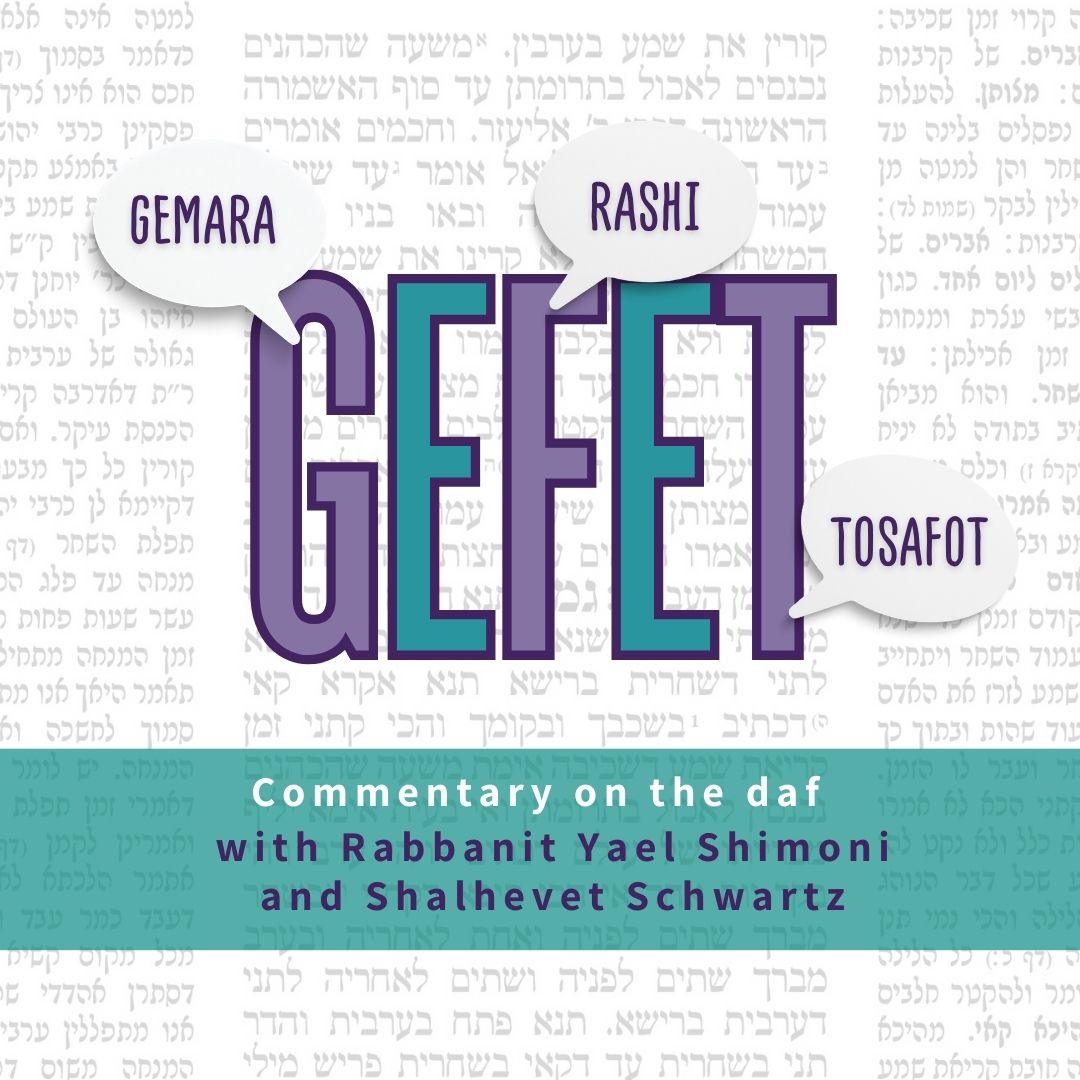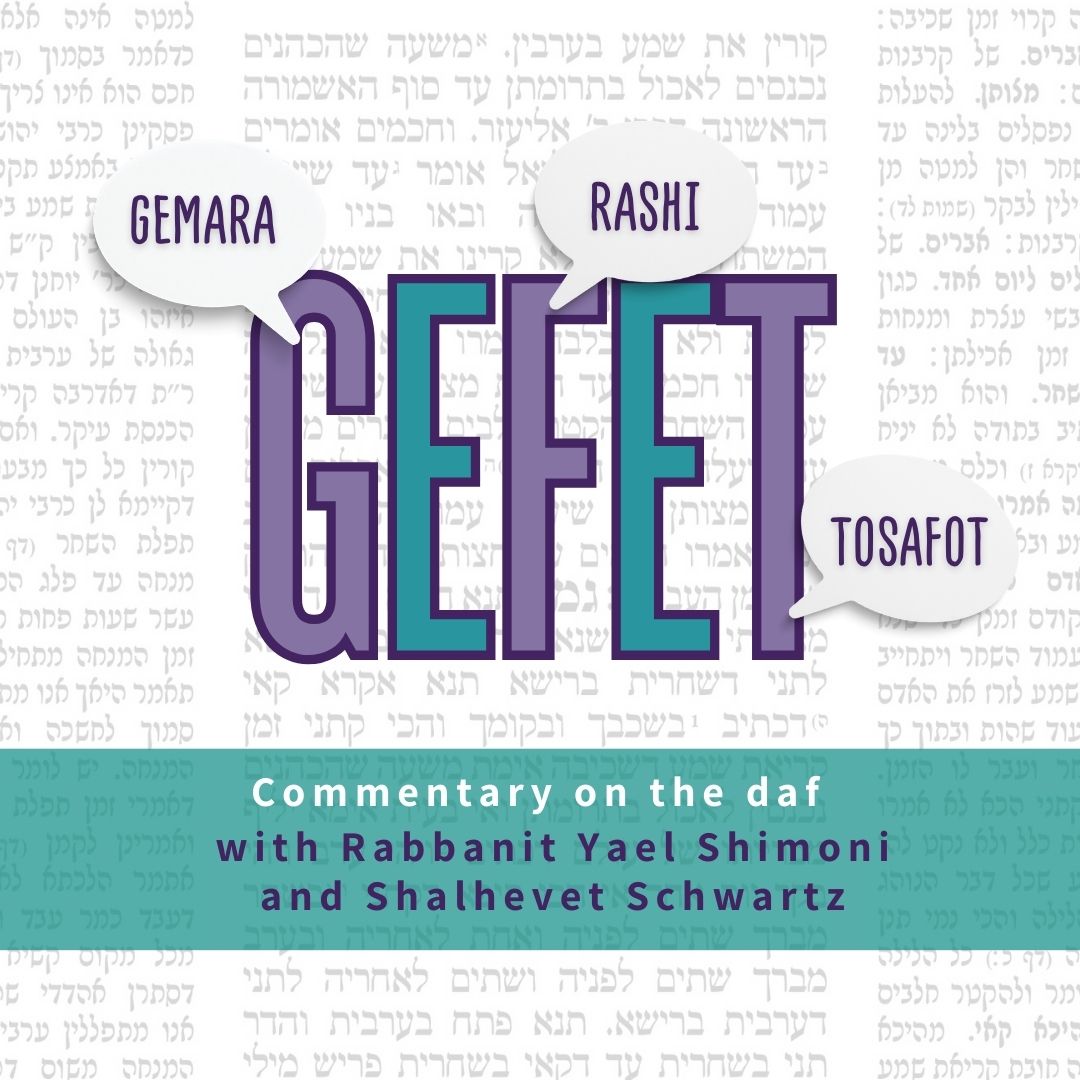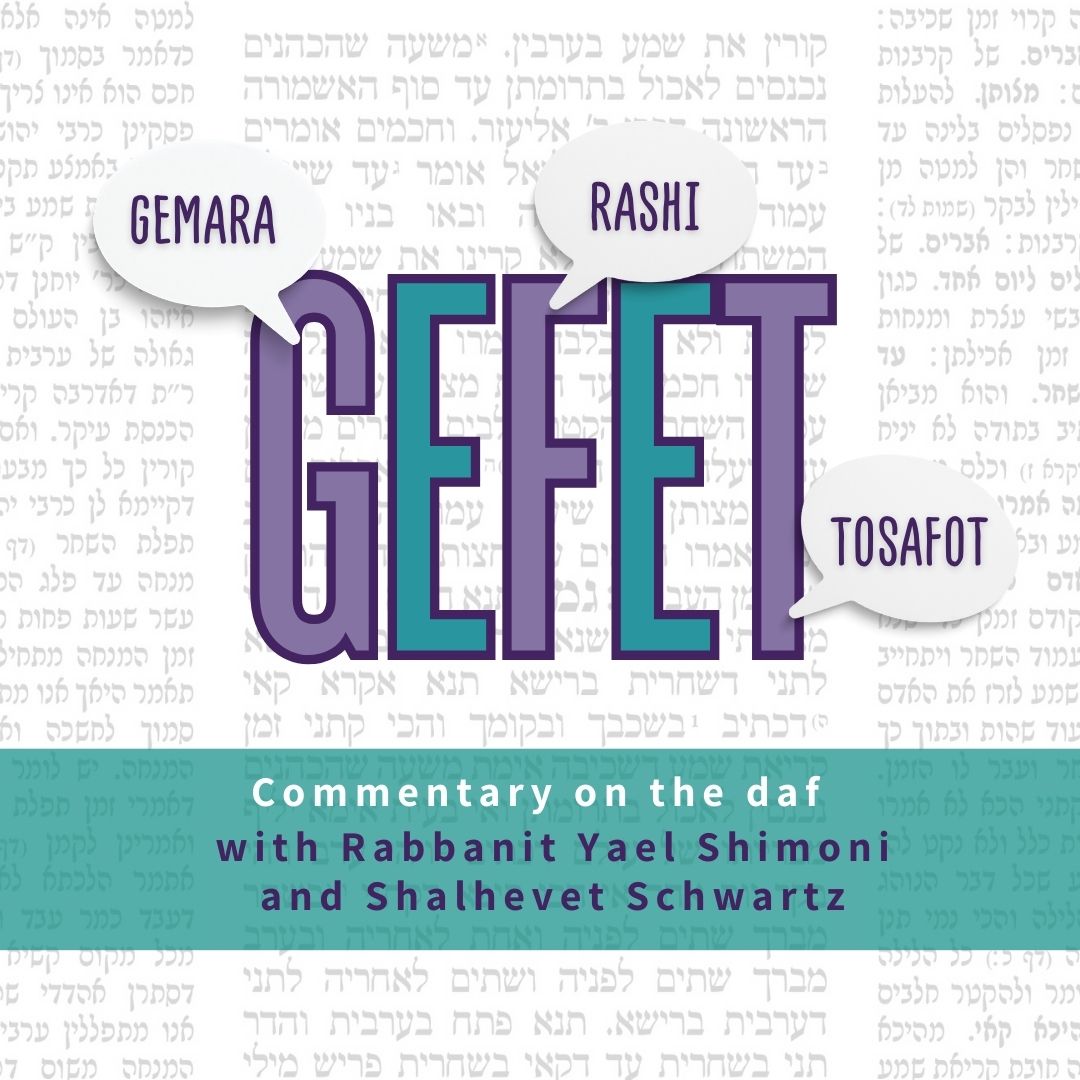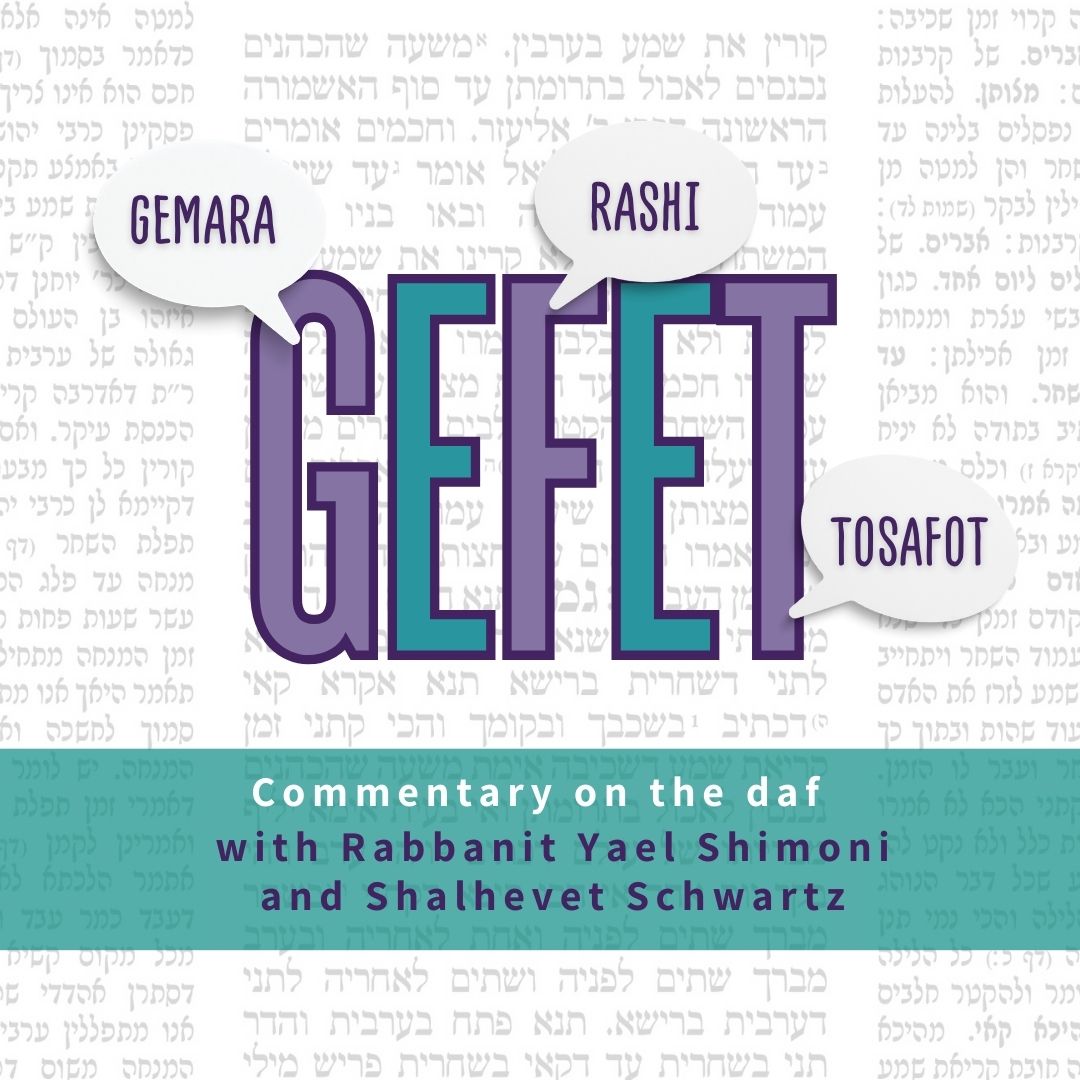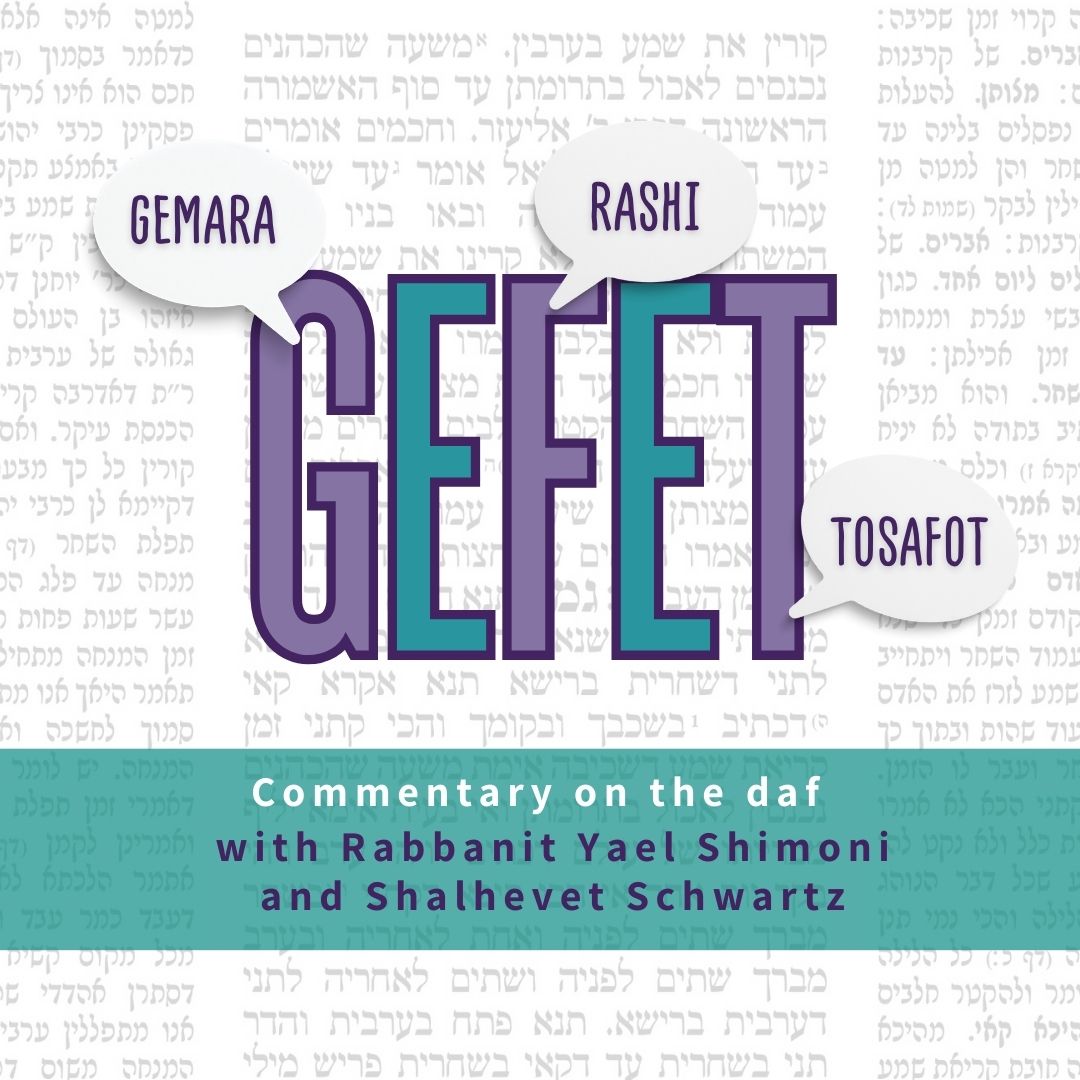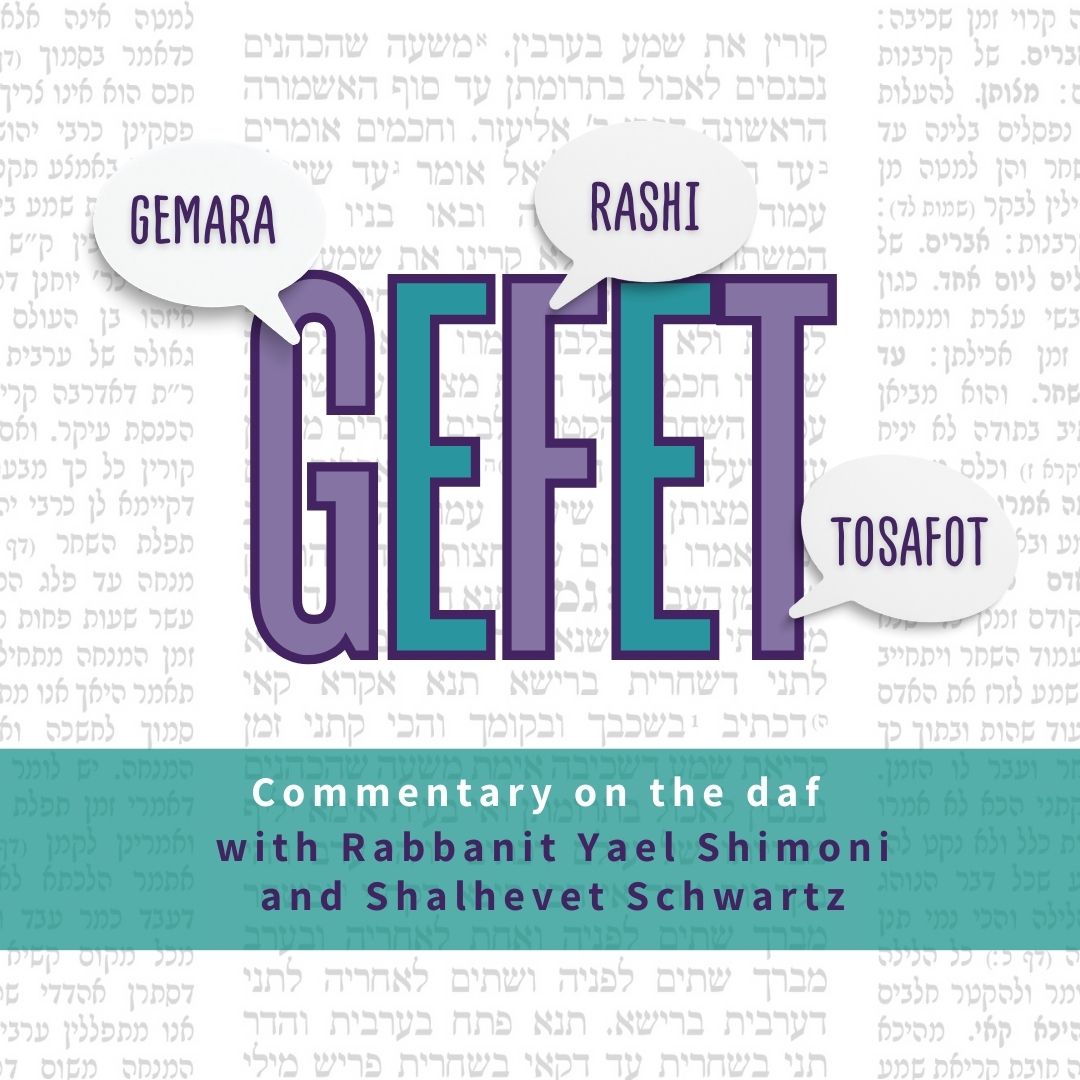Avodah Zarah 22
אֲרִיסוּתָא לְרַבִּי שִׁמְעוֹן בֶּן אֶלְעָזָר לֵית לֵיהּ, אֶלָּא גּוֹי מַאי טַעְמָא מוּתָּר? דְּאָמְרִינַן לֵיהּ וְצָיֵית. כּוּתִי נָמֵי אָמְרִינַן לֵיהּ וְצָיֵית! כּוּתִי לָא צָיֵית, דְּאָמַר: אֲנָא גְּמִירְנָא טְפֵי מִינָּךְ.
The Gemara answers: Rabbi Shimon ben Elazar does not accept the principle that a sharecropper works for his tenancy, rather than as the Jew’s employee. The Gemara asks: But if so, with regard to a gentile, what is the reason that it is permitted to rent to him? The Gemara answers that we say to him that he may not perform labor on certain days, and he complies. The Gemara asks: If that is so, then in the case of a Samaritan as well, we can say to him that he may not perform labor on certain days, and he will comply. The Gemara answers: A Samaritan will not comply, as he says: I am more learned than you, and I know that it is permitted to work on these days.
אִי הָכִי, מַאי אִירְיָא מִפְּנֵי שֶׁנִּקְרֵאת עַל שְׁמוֹ? תִּיפּוֹק לֵיהּ מִשּׁוּם ״לִפְנֵי עִוֵּר לֹא תִתֵּן מִכְשֹׁל״! חֲדָא וְעוֹד קָאָמַר: חֲדָא — מִשּׁוּם ״לִפְנֵי עִוֵּר״, וְעוֹד — מִפְּנֵי שֶׁנִּקְרֵאת עַל שְׁמוֹ.
The Gemara asks: If that is so, why does Rabbi Shimon ben Elazar state specifically that the reason for the prohibition is because the field is called by the name of the owner? Let him derive this halakha due to the fact that the Samaritan, like a Jew, is commanded to refrain from labor during the intermediate days of the Festival, and since he will work on these days, renting him a field is included in the prohibition: “You shall not put a stumbling block before the blind” (Leviticus 19:14). The Gemara answers: Rabbi Shimon ben Elazar states one reason and adds another: One reason is that of the prohibition: You shall not put a stumbling block before the blind; and, furthermore, it is prohibited because the field is called by the name of the owner.
הָנְהוּ מוֹרִיקָאֵי דְּגוֹי נָקֵיט בְּשַׁבְּתָא, וְיִשְׂרָאֵל בְּחַד בְּשַׁבְּתָא, אֲתוֹ לְקַמֵּיהּ דְּרָבָא — שְׁרָא לְהוּ.
§ The Gemara relates that there were certain saffron growers who jointly owned a field in an arrangement according to which a gentile took possession of the field and worked in it on Shabbat, and a Jew took possession of it on Sunday. They came before Rava, to find out if they could divide their profits equally, and Rava permitted them to do so.
אֵיתִיבֵיהּ רָבִינָא לְרָבָא: יִשְׂרָאֵל וְגוֹי שֶׁקִּיבְּלוּ שָׂדֶה בְּשׁוּתָּפוּת, לֹא יֹאמַר יִשְׂרָאֵל לְגוֹי: ״טוֹל חֶלְקְךָ בַּשַּׁבָּת וַאֲנִי בַּחוֹל״, וְאִם הִתְנוּ מִתְּחִלָּה — מוּתָּר,
Ravina raised an objection to the ruling of Rava from a baraita: In the case of a Jew and a gentile who received tenancy of a field in partnership, with the understanding that they were to work the field and receive part of its produce in exchange, the Jew may not say to the gentile: Take your portion of the profit for your work on Shabbat, and I will take my portion for my work on one of the days of the rest of the week. The reason one may not do so is that it turns out that when the gentile worked on Shabbat, he was laboring partly on behalf of his Jewish partner. But if they initially stipulated when they entered into their partnership that the gentile would receive a share of the profit in exchange for his work on Shabbat, and the Jew would receive a share for the work that he performs during one of the days of the week, it is permitted.
וְאִם בָּאוּ לְחֶשְׁבּוֹן — אָסוּר. אִיכְּסִיף, לְסוֹף אִיגַּלַּאי מִלְּתָא דְּהִתְנוּ מֵעִיקָּרָא הֲווֹ.
And if they did not make this stipulation and later came to calculate the number of weekdays for which the Jew should receive the profit, corresponding to the number of Shabbatot that the gentile worked, it is prohibited, as this would mean that when the gentile worked on Shabbat, he was working on behalf of the Jew. Rava was embarrassed that he had ruled incorrectly. Ultimately, the matter was revealed that the saffron growers had stipulated from the outset that this was the arrangement, and therefore even according to the baraita Rava had ruled correctly.
רַב גְּבִיהָה מִבֵּי כְתִיל אָמַר: הָנְהוּ שְׁתִילֵי דְּעׇרְלָה, הֲוָה גּוֹי אָכֵיל שְׁנֵי דְּעׇרְלָה, וְיִשְׂרָאֵל שְׁנֵי דְּהֶתֵּירָא. אֲתוֹ לְקַמֵּיהּ דְּרָבָא, שְׁרָא לְהוּ.
Rav Geviha from Bei Ketil said that the incident was actually as follows: The Jew and the gentile formed a partnership with regard to those orla saplings, to tend to them and sell them. The gentile would work and profit from them during the orla years, the first three years after the tree is planted when it is prohibited for a Jew to eat its fruit, and the Jew would work and profit from them during the years where the fruit is permitted. They came before Rava, who permitted them to do so.
וְהָא אוֹתְבֵיהּ רָבִינָא לְרָבָא! לְסַיּוֹעֵי סַיְּיעֵיהּ. וְהָא אִכְּסִיף! לֹא הָיוּ דְבָרִים מֵעוֹלָם.
The Gemara asks: But didn’t Ravina object to the ruling issued by Rava? The Gemara answers: No, Ravina’s intention was to provide a support for the ruling of Rava. The Gemara asks: But wasn’t Rava embarrassed by Ravina’s statement? The Gemara answers: That never happened.
אִיבַּעְיָא לְהוּ: סְתָמָא מַאי? תָּא שְׁמַע: אִם הִתְנוּ מִתְּחִילָּה — מוּתָּר, הָא סְתָמָא — אָסוּר.
A dilemma was raised before the Sages: If the partners did not specify that the gentile would work on Shabbat and the Jew during the week, but they also did not calculate their profits so that they would split the earnings equally, what is the halakha? The Gemara attempts to provide an answer from the baraita: Come and hear: If they initially stipulated that the gentile would receive a share of the profit in exchange for his work on Shabbat, while the Jew would receive a share for the work on one of the other days of the week, it is permitted. This indicates that without specification, it is prohibited.
אֵימָא סֵיפָא: אִם בָּאוּ לְחֶשְׁבּוֹן — אָסוּר, הָא סְתָמָא — מוּתָּר! אֶלָּא, מֵהָא לֵיכָּא לְמִשְׁמַע מִינַּהּ.
The Gemara rejects this proof: Say the last clause: If they came to calculate their profits, it is prohibited; this indicates that without specification, doing so is permitted. The Gemara concludes: Rather, no inference is to be learned from this baraita, as the inferences contradict each other.
הֲדַרַן עֲלָךְ לִפְנֵי אֵידֵיהֶן.
מַתְנִי׳ אֵין מַעֲמִידִין בְּהֵמָה בְּפוּנְדְּקָאוֹת שֶׁל גּוֹיִם, מִפְּנֵי שֶׁחֲשׁוּדִין עַל הָרְבִיעָה, וְלֹא תִּתְיַיחֵד אִשָּׁה עִמָּהֶן, מִפְּנֵי שֶׁחֲשׁוּדִין עַל הָעֲרָיוֹת, וְלֹא יִתְיַיחֵד אָדָם עִמָּהֶן, מִפְּנֵי שֶׁחֲשׁוּדִין עַל שְׁפִיכוּת דָּמִים.
MISHNA: One may not keep an animal in the inns [befundekaot] of gentiles because they are suspected of bestiality. Since even gentiles are prohibited from engaging in bestiality, a Jew who places his animal there is guilty of violating the prohibition: “You shall not put a stumbling block before the blind” (Leviticus 19:14). And a woman may not seclude herself with gentiles because they are suspected of engaging in forbidden sexual relations. And any person may not seclude himself with gentiles because they are suspected of bloodshed.
גְּמָ׳ וּרְמִינְהִי: לוֹקְחִין מֵהֶן בְּהֵמָה לְקׇרְבָּן, וְאֵין חוֹשְׁשִׁין לֹא מִשּׁוּם רוֹבֵעַ, וְלֹא מִשּׁוּם נִרְבָּע, וְלֹא מִשּׁוּם מוּקְצֶה, וְלֹא מִשּׁוּם נֶעֱבָד.
GEMARA: With regard to the assumption that gentiles are suspected of bestiality, the Gemara raises a contradiction from a baraita (Tosefta 2:1): One may purchase an animal from gentiles for use as an offering, and there is no concern that it might be unfit due to it being an animal that copulated with a person, or due to is being an animal that was the object of bestiality, or due to it having been set aside for idol worship, or due to the animal itself having been worshipped.
בִּשְׁלָמָא מוּקְצֶה וְנֶעֱבָד, אִם אִיתָא דְּאַקְצְיֵיהּ וְאִם אִיתָא דְּפַלְחֵיהּ — לָא הֲוָה מְזַבֵּין לֵיהּ, אֶלָּא רוֹבֵעַ וְנִרְבָּע לֵחוּשׁ! אָמַר רַב תַּחְלִיפָא אָמַר רַב שֵׁילָא בַּר אֲבִינָא מִשְּׁמֵיהּ דְּרַב: גּוֹי חָס עַל בְּהֶמְתּוֹ שֶׁלֹּא תֵּעָקֵר.
The Gemara analyzes this ruling: Granted, there is no concern that the animal was set aside for idolatry or was itself worshipped. The reason is that if it is so that it was set aside, or if it is so that it was worshipped, then the gentile would not have sold it to the Jew in the first place. But with regard to the possibility that it is an animal that copulated with a person or an animal that was the object of bestiality, let one raise a concern in line with the ruling of the mishna. The Gemara explains: Rav Taḥlifa says that Rav Sheila bar Avina says in the name of Rav: A gentile protects and thereby spares his own animal so that it will not become barren. Since an act of bestiality may cause an animal to become barren, there is no concern that the gentile engaged in immoral behavior with it. Therefore, one may use an animal purchased from a gentile as an offering.
הָתִינַח נְקֵבוֹת, זְכָרִים מַאי אִיכָּא לְמֵימַר? אָמַר רַב כָּהֲנָא: הוֹאִיל וּמַכְחִישִׁין בַּבָּשָׂר.
The Gemara asks: This works out well with regard to female animals, as they can become barren, but with regard to males, what is there to say? Rav Kahana says: Gentiles also refrain from engaging in bestiality with their male livestock, since doing so deteriorates the animals’ flesh, i.e., it makes them physically weaker.
אֶלָּא הָא דְּתַנְיָא: לוֹקְחִין בְּהֵמָה מֵרוֹעֶה שֶׁלָּהֶן, לֵיחוּשׁ דִּלְמָא רַבְעַהּ לָהּ! רוֹעֶה שֶׁלָּהֶן מִתְיָירֵא מִשּׁוּם הֶפְסֵד שָׂכָר.
Rather, the Gemara instead raises a contradiction from that which is taught in a baraita: One may purchase an animal for use as an offering from their shepherd, i.e., a gentile shepherd. The Gemara explains the apparent contradiction: In light of the ruling of the mishna, let us be concerned that perhaps he engaged in bestiality with the animal, as it does not belong to him, and therefore it should be prohibited to purchase an animal from gentile shepherds. The Gemara answers: Their shepherd is fearful of engaging in bestiality with the animals under his care, due to the forfeit of his wages that would result if this were discovered.
אֶלָּא הָא דְּתַנְיָא: אֵין מוֹסְרִין בְּהֵמָה לָרוֹעֶה שֶׁלָּהֶן, לֵימָא: רוֹעֶה שֶׁלָּהֶן מִתְיָירֵא מִשּׁוּם הֶפְסֵד שְׂכָרוֹ!
Rather, the Gemara instead raises a contradiction from that which is taught in a baraita: One may not deliver an animal to their shepherd, i.e., a gentile shepherd. The Gemara explains the contradiction: Why may one not do so? Let us say that their shepherd is fearful due to the forfeit of his wages, and accordingly one should be permitted to give him an animal.
אִינְהוּ דְּיָדְעִי בַּהֲדָדֵי, מִרַתְתִי. אֲנַן דְּלָא יָדְעִינַן בְּהוּ, לָא מִרַתְתִי. אָמַר רַבָּה: הַיְינוּ דְּאָמְרִי אִינָשֵׁי: מַכְתְּבָא גְּלָלָא בָּזַע, רַגָּלָא בְּחַבְרֵיהּ יָדַע.
The Gemara answers: With regard to themselves, i.e., other gentiles, as they are aware of each other’s actions, they are fearful that they may be caught, and therefore will not engage in bestiality with an animal belonging to another gentile. But with regard to ourselves, Jews, as we are not aware of them and their behavior, they are not fearful of us. The Gemara notes that Rabba said: This is in accordance with the adage that people say: Just as the stylus etches script upon marble, a sinner knows his fellow sinner, i.e., a transgressor is acutely aware of others who act in the same manner.
אִי הָכִי, זְכָרִים מִנְּקֵבוֹת לָא נִיזְבּוֹן, דְּחָיְישִׁינַן דִּלְמָא מַרְבְּעָא לֵיהּ עִילָּוַהּ! כֵּיוָן דְּמִיגָּרֵי בַּהּ, מִרַתְתָא.
The Gemara raises a difficulty: If that is so, and the reason one may purchase an animal for use as an offering from a gentile is that engaging in bestiality has a negative impact on the animal, then let us not purchase male animals from female gentiles, as we should be concerned that perhaps she engaged in bestiality with it. This would not damage the animal or render it barren, and therefore there is no deterrent that would prevent a gentile woman from doing so. The Gemara answers: Since, if she were to engage in bestiality, the animal would follow her around in public, she is afraid of others discovering her behavior.
אֶלָּא הָא דְּתָנֵי רַב יוֹסֵף: אַרְמַלְתָּא לָא תְּרַבֵּי כַּלְבָּא, וְלָא תַּשְׁרֵי בַּר בֵּי רַב בְּאוּשְׁפִּיזָא. בִּשְׁלָמָא בַּר בֵּי רַב צְנִיעַ לַהּ, אֶלָּא כַּלְבָּא, כֵּיוָן דְּמִיגָּרֵה בַּהּ — מִרַתְתָא!
The Gemara further asks: But consider that which Rav Yosef teaches: A widow may not raise a dog due to the suspicion that she may engage in bestiality, and she may not allow a student of Torah to dwell as a lodger [be’ushpiza] in her home. Granted, it makes sense that is prohibited for her to have a student of Torah lodging in her home, as he is regarded as discreet in her eyes, so she will not be deterred from sinning with him. But with regard to a dog, since it would follow her around after she mates with it, she is afraid to engage in bestiality with it. Therefore, it should be permitted for her to raise a dog.
כֵּיוָן דְּכִי שָׁדְיָא לֵיהּ אוּמְצָא וּמִסְּרִיךְ אַבָּתְרַהּ, מֵימָר אָמְרִי אִינָשֵׁי: הַאי דְּמִסְּרִיךְ אַבָּתְרַהּ מִשּׁוּם אוּמְצָא דְּקָא מִסְּרִיךְ.
The Gemara answers: Since it will also follow her around in a case when she throws it a piece of meat, people will say: The fact that it is following her is due to the meat she threw at it, and they will not suspect her of bestiality. Consequently, she will not be deterred from transgressing.
נְקֵבוֹת אֵצֶל נְקֵבוֹת, מַאי טַעְמָא לָא מְיַיחֲדִינַן? אָמַר מָר עוּקְבָא בַּר חָמָא: מִפְּנֵי שֶׁהַגּוֹיִם מְצוּיִין אֵצֶל נְשֵׁי חַבְרֵיהֶן, וּפְעָמִים שֶׁאֵינוֹ מוֹצְאָהּ וּמוֹצֵא אֶת הַבְּהֵמָה וְרוֹבְעָהּ.
The Gemara asks: With regard to female animals with females, what is the reason that we do not permit them to be secluded with each other? Mar Ukva bar Ḥama says: It is because gentiles frequent the wives of others, and on occasion the gentile does not find her, and he finds the animal and engages in bestiality with it instead.
וְאִיבָּעֵית אֵימָא: אֲפִילּוּ מוֹצְאָהּ נָמֵי רוֹבְעָהּ, דְּאָמַר מָר: חֲבִיבָה עֲלֵיהֶן בְּהֶמְתָּן שֶׁל יִשְׂרָאֵל יוֹתֵר מִנְּשׁוֹתֵיהֶן, דְּאָמַר רַבִּי יוֹחָנָן: בְּשָׁעָה שֶׁבָּא נָחָשׁ עַל חַוָּה הֵטִיל בָּהּ זוּהֲמָא. אִי הָכִי, יִשְׂרָאֵל נָמֵי? יִשְׂרָאֵל שֶׁעָמְדוּ עַל הַר סִינַי — פָּסְקָה זוּהֲמָתָן, גּוֹיִם שֶׁלֹּא עָמְדוּ עַל הַר סִינַי — לֹא פָּסְקָה זוּהֲמָתָן.
And if you wish, say instead: Even when he finds the wife, he also engages in bestiality with the animal, as the Master said: The animal of a Jew is more appealing to gentiles than their own wives, as Rabbi Yoḥanan says: At the time when the snake came upon Eve, at the time of the sin of her eating from the Tree of Knowledge, it infected her with moral contamination, and this contamination lingers in all human beings. The Gemara asks: If that is so, a Jew should also be suspected of engaging in bestiality. The Gemara answers: With regard to the Jewish people, who stood at Mount Sinai and received the Torah, their contamination ended, whereas in the case of gentiles, who did not stand at Mount Sinai and receive the Torah, their contamination has not ended.
אִיבַּעְיָא לְהוּ: עוֹפוֹת מַאי? תָּא שְׁמַע, דְּאָמַר רַב יְהוּדָה אָמַר שְׁמוּאֵל מִשּׁוּם רַבִּי חֲנִינָא: אֲנִי רָאִיתִי גּוֹי שֶׁלָּקַח אַוָּוז מִן הַשּׁוּק, רְבָעָהּ, חֲנָקָהּ, צְלָאָהּ, וַאֲכָלָהּ. וְאָמַר רַבִּי יִרְמְיָה מִדִּיפְתִּי: אֲנִי רָאִיתִי עַרְבִי אֶחָד שֶׁלָּקַח יָרֵךְ מִן הַשּׁוּק, וְחָקַק בָּהּ כְּדֵי רְבִיעָה, רְבָעָהּ, צְלָאָהּ, וַאֲכָלָהּ.
§ The Gemara inquires with regard to the halakha in the case of a bird. A dilemma was raised before the Sages: With regard to birds, what is the halakha? Are gentiles suspected of engaging in bestiality with birds? The Gemara suggests: Come and hear a proof that they are suspected of doing so, as Rav Yehuda says that Shmuel says in the name of Rabbi Ḥanina: I once saw a gentile who bought a goose in the market, engaged in bestiality with it, strangled it, roasted it, and then ate it. And similarly, Rabbi Yirmeya of Difti says: I saw a certain Arab who bought a thigh of meat from the market and carved a space in it that was the size necessary to allow for penetration. Subsequently, he penetrated it, roasted it, and ate it. These incidents demonstrate that gentiles are suspected of immoral conduct with fowl.



